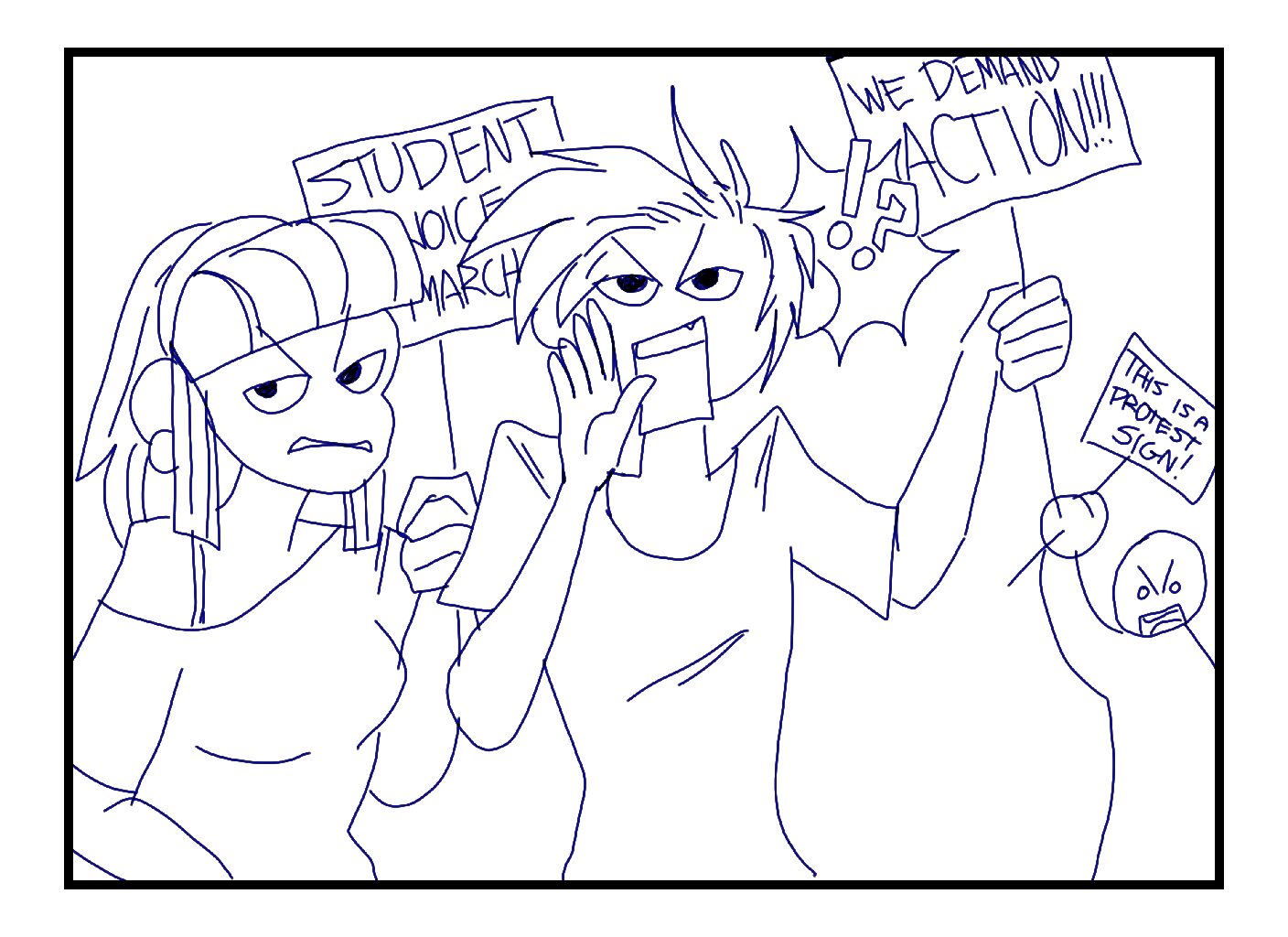A series of protests has filled the streets of Spokane in recent weeks, with, demonstrators rallying around issues ranging from free speech and public education to opposition against the Trump administration’s policies.
Three major demonstrations took place within the past month: the Hands Off Rally on April 5, 2025, Money for People, Not for War! on April 20, and the May Day March on May 1. While each event had its own focus, together they reflected a growing sense of urgency among local activists and residents concerned about constitutional rights and government accountability.
The May Day March, traditionally held each year on May 1, also featured a longstanding local tradition in which members of the Spokane legal community renew their vows to uphold the law and the Constitution. The ceremony, typically led by the local bar association,
“In times like these, the imperative question becomes: If lawyers and judges are not willing or able to defend liberty and freedom for all people under the law and Constitution, who will?” Terra Nevitt asked during the event.
As tensions over civil liberties remain high nationwide, free speech advocates have increasingly joined these Spokane demonstrations to clarify the legal boundaries of the First Amendment and to defend the rights of protesters.
Among them were Alex Morey and Will Creeley, representatives from FIRE (Foundation for Individual Rights and Expression), a national nonprofit dedicated to defending freedom of speech, due process, and academic freedom on college campuses and beyond.
Speaking to demonstrators and local media, Morey emphasized the importance of understanding what speech is protected under the Constitution — and what isn’t.
“The First Amendment does set the bar on some conduct that can include speech that is unprotected — and for good reason,” Morey said. “For example, you cannot make a ‘true threat,’ a serious expression of an intent to commit unlawful violence. But what we often see is people labeling something a threat because it feels offensive or alarming, when 95 percent of the time, it doesn’t meet the legal definition.”
Morey added that while people have a right to express themselves in public spaces, they can’t always control how others react.
“When it comes down to it,” she said.“If you’ve stayed within your legal rights and the police get called, you’ve done the right thing by standing up peacefully.”
That distinction between public and private spaces has also become a point of clarification in recent weeks. While public institutions are bound by the First Amendment, private organizations and universities have broader discretion in setting their own speech policies.
A representative from the Boston Bar Association addressed the issue in a written statement shared with local organizers.
“Public universities, like all arms of government, must comply with the First Amendment and its prohibitions against abridging the freedom of speech and freedom of assembly. Private universities do not.” alex morey says
In Spokane, where several private institutions like Gonzaga University and Whitworth University operate alongside public schools, the difference in legal obligations has led to confusion for some students and community members.
As protests continue across the city, organizers say they plan to keep advocating for constitutional rights and greater government transparency. Demonstrators involved in the recent protests expressed frustration with what they see as increasing restrictions on civil liberties and growing political polarization.
With more demonstrations expected throughout the summer, Spokane residents are likely to see continued debates over the scope of free expression and the responsibilities that come with it.


